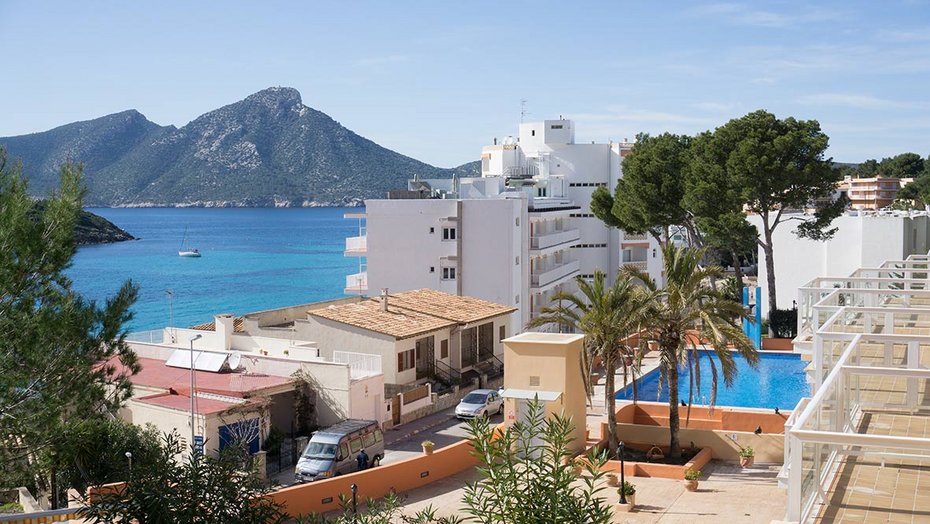
The Spanish tenancy agreement
Around 500,000 Germans live as tenants on Mallorca and along the Mediterranean coast of Spain. In order to protect themselves from surprises when signing a tenancy agreement, prospective German tenants should familiarise themselves with the current tenancy law in Spain.
An overview reveals which rental periods, deposit amounts and distribution of costs are legally stipulated and which pitfalls can be avoided in advance.
Contents:
- The 6 most important points in the Spanish rental contract
- Lucrative legal amendment: Renovating instead of paying rent
- In case of divorce: Spouse receives right of entry into the rental contract
- Protection against rent defaulters
- Important detail: the handover protocol
- Contractually stipulate rent, taxes and additional costs
- Due date of the monthly rent and deposit
- Checklist for renting a flat in Mallorca
Anyone looking for a rental apartment in Mallorca or the Spanish countryside will initially be pleasantly surprised: the Spanish housing market offers a wide range of beautifully located rental properties at reasonable prices. However, when seriously interested in a property and entering into concrete contract negotiations, German tenants should keep a cool head. In order to avoid unpleasant surprises, it is important to enter into negotiations with the landlord with a basic knowledge of Spanish law.
This primarily includes knowledge of the latest legal situation in Spanish tenancy law. The tenancy law "Ley de Arrendamientos urbanos (LAU)" regulates the renting of residential property in Spain. With a percentage of 17% of rental apartments throughout the country, tenancy law has not previously played a major role in the Spanish legal landscape and sometimes included disadvantages for tenants and landlords. With Legislative Decree 4 of 4 June 2013, the Spanish legislature established more flexible rules that have a more lucrative effect for both landlords and tenants.
However, the new tenancy law does not apply to tourist rentals, which concern the letting of furnished apartments for a limited period. Furthermore, the new legal regulation can only be applied to tenancy agreements concluded after 5 June 2013.
The 6 most important points in the Spanish tenancy agreement
- Tenants who want to rent a property in Mallorca can, with the new regulation, conclude a tenancy agreement with a minimum term of three years (more details on this in the article "Renting an apartment in Mallorca: The minimum rental period"). In addition, the contract term can be agreed individually. This reduction of the minimum term from five to three years allows the tenant greater flexibility, for example if a change of job is imminent. The advantages for the landlord are of course also foreseeable.
- After this minimum term, the contract is extended for another year if neither party terminates the contract at least 30 days before expiry.
- In addition, the landlord receives the possibility, after one year from the start of the contract, to reclaim and use the flat for themselves or one of their family members (i.e. for their own use) as a permanent residence. However, if the landlord does not move into the property within three months, the former tenant has the right to reclaim the rental property or demand appropriate compensation instead.
- The tenant, on the other hand, has the possibility under the new regulation to terminate the tenancy agreement after six months at the earliest. For this, they must inform the landlord in writing a total of 30 days before the desired end of the contract term. In this case, both parties can also agree on compensation amounting to one month's rent for each year of rent not fulfilled, which is stipulated in the tenancy agreement.
- Particular caution is advised with indefinite tenancy agreements: they oblige the tenant to pay the rent for at least one year. To protect themselves from this, an notice period of 30 days should in any case be recorded in writing in the contract for indefinite tenancy agreements. It is also advisable to initially rent a flat for a limited period and to extend the fixed-term contract by another year after the end of the contract. Anyone who terminates their rental flat within the 30-day period should in any case have the notice of termination signed by the landlord.
- It is also important for renting a property in Mallorca to check in detail whether the tenancy agreement is registered in the land registry. Because this land registry entry secures protection from eviction for the tenant under Spanish law, for example in the event of a sale of the property. If this is the case, the contract must continue to be maintained for the entire rental period. This also applies if the landlord should lose their property. This would be the case, for example, if a subsequent inheritance occurs or the mortgage on the property is enforced.

Lucrative new law: renovating instead of paying rent
If the rental period exceeds the statutory minimum rental period of three years, both parties have the option of stipulating the following agreements in the tenancy agreement: If the tenant dies after three years of the contract term, certain persons named in the tenancy agreement may not take over the tenancy agreement according to Section 16.1 of the Spanish Tenancy Law. This primarily concerns close relatives of the tenant. However, should the tenant die before the expiry of the three-year period, the tenancy agreement automatically expires after the end of the third year.
Furthermore, according to Spanish tenancy law, the parties can agree that instead of rent payments, a renovation of the flat will be carried out within a specific period. The type and scope of the renovation work to be carried out by the tenant should be specified in detail in the contract.
Caution: If the obligation to renovate is not fulfilled, the tenant can be evicted. If the landlord makes improvements to the property, they may increase the rent. According to Spanish tenancy law, they may demand a rent increase of up to 20% of the rent during the minimum tenancy period of three years.
In the event of divorce: spouse receives right of entry into the tenancy agreement
A special right arises if the tenant couple of a flat in Mallorca separate or divorce: In this case, one spouse can enter into the existing tenancy agreement by court order. In this case, the landlord must be notified of this court order within two months and informed of the change in the contractual partnership. If no waiver of tenant's rights has been stipulated in the tenancy agreement, the family member may also assert their claim to the Spanish rental property if the tenant dies.
However, this tenancy right only applies if the duration of the tenancy agreement is longer than the minimum term of three years.

Protection against rental nomads
If a tenant does not pay their rent in Spain, the landlord has various options. In the case of rental agreements that are registered in the land register, the landlord can assert his right to cancel the contract immediately. If the landlord decides to take such action, he should usually send the tenant his written notarised or court declaration of intent. This procedure should be stipulated in advance in the tenancy agreement.
As a further measure against tenant nomads, the landlord can initiate a rental process (demanda / desahucio por impago), which is carried out in an accelerated procedure in Spain in accordance with the reformed Tenancy Agreement Act of 4 June 2013. For this purpose, the Spanish landlord also has the option of researching and reviewing previous legally binding judgements for non-payment of rent.

Important detail: the handover protocol
In order to avoid misunderstandings, tenants and landlords should write a handover protocol when the contract is handed over, in which the entire inventory and the condition of the flat are precisely recorded.
The following applies to every tenancy in Spain: at the end of the tenancy, the tenant must hand over the flat in the same condition in which they received it. If the landlord considers there to be any defects or improvements to be criticised, the tenant must bear the costs required to restore the flat to its original condition. During the rental period, the tenant must therefore pay for the removed furniture, for example, or replace damaged electrical appliances. The tenant also bears the costs for waste disposal and the final cleaning of the rented flat. Signs of wear and tear on walls, tiles and window frames in the flat that go beyond the normal extent must also be removed and paid for by the tenant in Spain.
If a legal dispute arises, for example with regard to the furniture in the flat at the end of the contract, it is up to the landlord to prove that the furniture was in the flat at the start of the contract. The handover protocol with the (also photographic) list of all furniture or witness statements are considered evidence. For this reason, the presence of witnesses at the handover of the contract is an important protection - also for the tenant.
Contractually stipulate rent, taxes and ancillary costs
Tenants of a Spanish property are also advised to stipulate in the contract who is responsible for paying the service charges and the local property tax for the rented property.
As a rule, the tenant is responsible for paying the building's maintenance costs, fees, charges and taxes such as the aforementioned local property tax. In shared housing, it is advisable to specify the exact service charges in the contract. This protects individual tenants from having to take over the service charges of a flatmate after they move out. According to Spanish tenancy law, the amount of rent can be freely agreed upon by both parties. During the first three years of the tenancy, the rent increase may not exceed the percentage of the general Consumer Price Index (Spanish: Índices de Precios de Consumo or IPC).
Due date of the monthly rent and deposit
German tenants of a Spanish flat should note that in Mallorca the rent is due in advance within the first seven days of the month. The amount of the deposit is usually one to two months' rent.
However, prospective tenants are advised to agree on a deposit of one month's rent when signing the contract, as landlords often try to retain the deposit at the end of the rental period.

To ensure legal security when renting a property for long-term let on the Balearic Islands or the Spanish mainland, the following procedure is demonstrably advisable:
- Start your search for a property in Mallorca – as usual – online via internet property portals rather than locally. Here you can comfortably make a pre-selection of two or more properties and initially establish first contact with the estate agent via email.
- Now have the detailed property particulars for your favoured properties sent to you. They should be completed by the landlord or estate agent and contain details of the rent, tenancy term, deposit and service charges. Ensure that the key data of the property, such as square metreage, property size, address, land registry number (referencia catastral), balcony and lift, are also stated later in the tenancy agreement.
- When you subsequently view the property of your choice with the tenancy agreements, you can check exactly whether the description of the property in the tenancy agreement matches the actual property.
- If you like one of the properties, draw up a detailed handover report (acta de entrega) together with the landlord or agent. This should list the inventory and the condition of the property. If everything is in order, you can now sign the tenancy agreement and the handover report. During the handover, you should in any case have a witness present who could testify to the condition of the property in the event of a dispute. Do not hesitate to consult a specialist lawyer in Spanish tenancy law if there are any discrepancies regarding the tenancy agreement. The review by the lawyer may protect you from a long-term and costly legal dispute in Spain.
- Especially important: For every single amount you pay to the landlord, have a receipt (recibo) issued. Check on this in detail whether the amount, date and purpose match.
You should keep these together with the tenancy agreement and the handover report.








